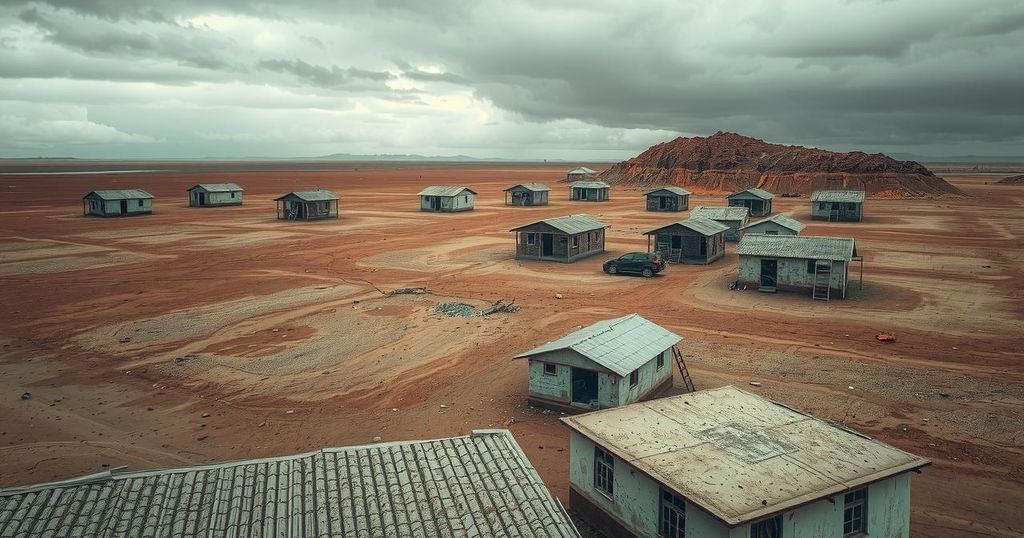The World Bank predicts that South Sudan will experience universal poverty by 2025 due to declining oil production and ongoing economic challenges. The poverty rate has increased significantly, with 76% of the population living below the national poverty line in 2022. Inflation is extremely high at 139%, deeply affecting purchasing power. Government reforms aim to diversify the economy and rebuild stability.
According to a recent report by the World Bank, South Sudan is anticipated to face universal poverty by 2025, stemming from various factors, including a decline in oil production and external shocks. The “South Sudan Economic Monitor” report indicates that over three-quarters of the population, or 76 percent, lived below the national poverty line in 2022, marking a 7 percentage-point increase since 2015.
Charles Undeland, the World Bank Group’s country manager for South Sudan, noted the exacerbating poverty levels can be attributed to severe economic decline caused by interruptions in oil production due to the ongoing conflict in neighbouring Sudan, the effects of COVID-19, and the indirect fallout from the war in Ukraine. He remarked that the inflation rate surged to 139 percent in August 2024, significantly diminishing the purchasing power of South Sudanese citizens, compounded by the adverse effects of years of heavy flooding on the economy.
The report reveals a concerning rise in extreme deprivation, defined as households unable to afford basic food. This figure increased by 4 percentage points to 70 percent in 2022, escalating to 84 percent in 2023 and a staggering 92 percent in 2024. Undeland underscored that improving South Sudan’s economic outlook relies on achieving comprehensive peace and stability through the implementation of the 2018 revitalized peace agreement.
Minister of Finance and Planning, Marial Dongrin Ater, highlighted that the government has embarked on reforms post-peace agreement, aimed at enhancing macroeconomic conditions and public financial management. He stated, “Recognising the vulnerability due to our heavy reliance on oil revenues, we have taken concrete steps to broaden our economic base, including expanding support for agriculture, enhancing trade facilitation, and promoting investment in critical infrastructure.”
In conclusion, the World Bank’s report warns of a severe escalation in poverty levels in South Sudan, with projections of universal poverty by 2025. This is influenced significantly by the decline in oil production, rising inflation, and various external shocks. Effective reforms and a commitment to peace are essential for stabilizing the economy and improving living conditions for the South Sudanese people.
Original Source: www.lokmattimes.com




